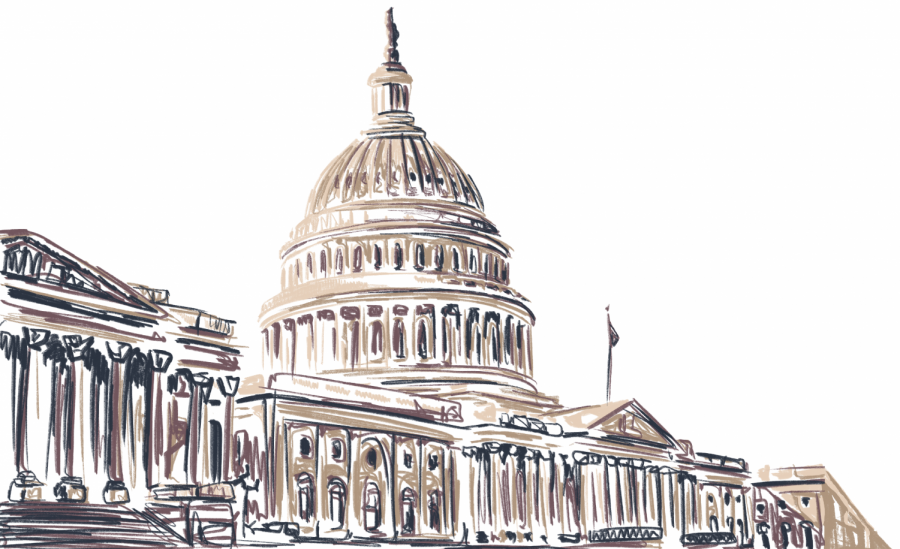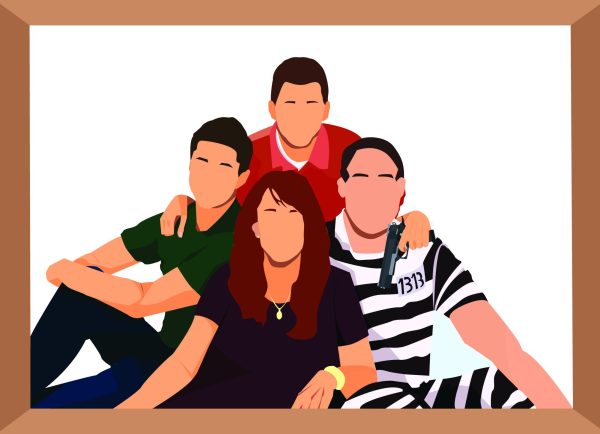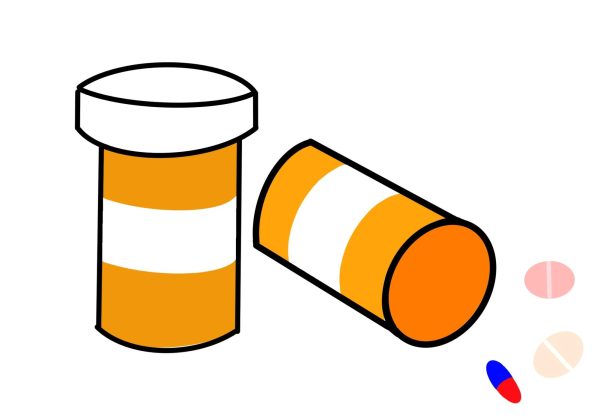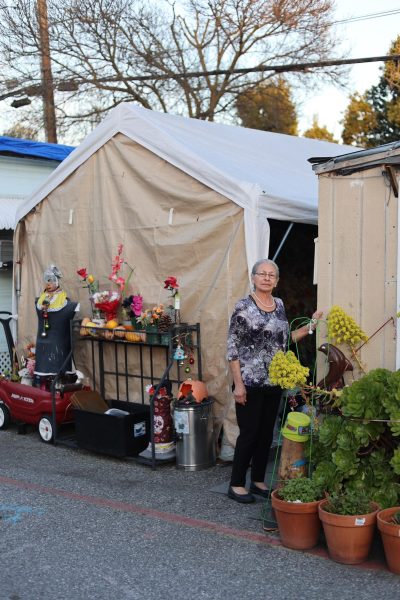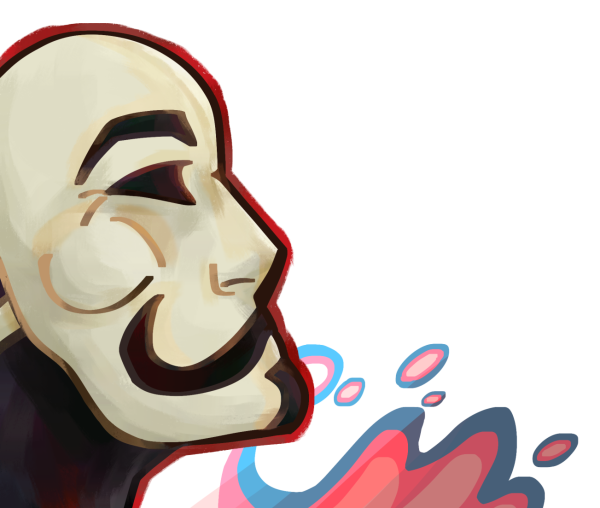Cops: Villains? Heroes? Both?
March 20, 2021
It’s in the news. That’s where we see them. Police. Kneeling on George Floyd’s neck. Raiding Breonna Taylor’s apartment. Quick to attack during a Black Lives Matter protest but standing by during the Capitol Hill riots. These are all stories we know too well. Same stories, different names.
The common antagonist: police.
Tear-gassing crowds of peaceful protests. Taking innocent lives. Putting them behind bars. Ignoring the consequences. Then repeating the process, over and over again, till it became a well-known pattern.
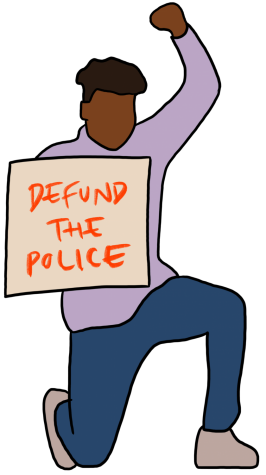 Defund the Police. The phrase that started appearing everywhere. Written on cardboard signs in thick black sharpies, shouted in large crowds through megaphones, known by all.
Defund the Police. The phrase that started appearing everywhere. Written on cardboard signs in thick black sharpies, shouted in large crowds through megaphones, known by all.
One common misconception about the phrase is that it means abolishing or dismantling the police. What it proposes to do is redirect funds towards other parts of the government.
In an article published by Rolling Stone, Tessa Stuart said those who support the defunding of police argue it will take away the money from purchases of tanks, cars, weapons, and riot equipment. Then the funding can go to social services that work to improve mental health, addiction, and homelessness.
What defunding the police will actually do is take money away from community projects and organizations. For example, in a message sent out by the National Police Support Fund, they said the money would be directed away from programs that target taking criminals off the streets. It would also mean more budget cuts in general, as well as less resources and less ability to give adequate training.
Many say that ‘defunding the police’ is the next step towards a complete dismantling of the police. But why are supporters of defunding trying to dismantle the police?
 In an article addressing defunding the police, Human Rights Watch mentions that the cool of supporters is a community of equals regardless of race, class or gender. While this seems like a good plan, they would be doing is taking away jobs from those who have devoted their lives to protecting the community and have done no wrong. Taking away law enforcement can be a dangerous path.
In an article addressing defunding the police, Human Rights Watch mentions that the cool of supporters is a community of equals regardless of race, class or gender. While this seems like a good plan, they would be doing is taking away jobs from those who have devoted their lives to protecting the community and have done no wrong. Taking away law enforcement can be a dangerous path.
While we see these events in the media constantly, the police involved in them that spark public uproar is a small percentage of police forces. While there are members of the police force who have abused their power and taken the lives of many innocent people, they do not make up the entirety of the police force. Dismantling or defunding the police would take away authority from those individuals too.
There are around 800,000 law enforcement officers in the United States and over 22,000 have lost their lives on duty (nleomf.org). Thousands devote their lives to creating a safer community, and they are willing to risk their lives to do so. For example, Police Officer Brian Sicknick died during the riots in the U.S. Capitol on Jan. 6.
But he’s a cop, so he couldn’t have been a good person, right? He was described as a lovely and humble soul by a friend in the United States Capitol Police. He, along with many other officers who have lost their lives, were honest and loyal throughout their time on police forces. Dismantling the police may solve some problems we face with select officers but it will also invalidate the devotion of the hundreds of thousands of officers who have risked their lives for this country and its people.
Supporting police doesn’t mean that we can’t still hold them accountable. If anything, it is essential that we hold them accountable. If we are going to support the police, we cannot hesitate to hold them accountable for their actions.
In early June of last year, the American Civil Liberties Union brought up the idea of reimagining the police rather than taking away their funding. In early June of last year, Anthony D. Romero, ACLU executive director sent out a message regarding this. He acknowledged the ACLU’s past efforts to change policies, improve training, and instating better procedures. These areas are being constantly changed in the hope that one of those changes would fix everything. But the hard truth is that reworking trainings and policies aren’t addressing the core problem. The core problem is the lack of accountability,
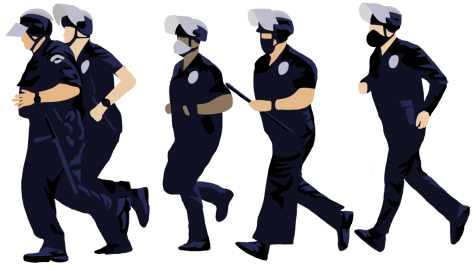 Officers need to be held accountable for their actions and there has to be a set precedent for how cases, like George Floyd’s, are handled. The system cannot side with officers and dismiss cases without thorough investigation. In many cases, including George Floyd’s, it took a public outcry and protests to fight against a system that historically favors officers.
Officers need to be held accountable for their actions and there has to be a set precedent for how cases, like George Floyd’s, are handled. The system cannot side with officers and dismiss cases without thorough investigation. In many cases, including George Floyd’s, it took a public outcry and protests to fight against a system that historically favors officers.
If we, the people, are not willing to hold them accountable for their actions then who will? Again, the killing of George Floyd is a good example of this. Derek Chauvin, 19-year Minneapolis Police Department veteran, was charged with third-degree murder and manslaughter The remaining three officers involved have been removed from the force. This is an exception to what we normally see in similar cases. Often, the law will side with law enforcement.
In the case of Chauvin, there had been multiple incidents prior to the killing of George Floyd. An article published by Mercury News stated he had 18 complaints on his record and was a part of three police shootings — one of which resulted in a death. If action had been taken to remove Chauvin after the complaints and shootings, the death of George Floyd might have been avoided. It was the dismissal of prior problems and reports that eventually led to the death of an innocent man.
To a similar extent, we need to do more for officers who have worked hard and with integrity to ensure that their communities are safe. We need to continue to honor those officers rather than dismissing or lessening their devotion because they are a cop.
We need to show them that they will have our support as long as they do what is in the best interest of the people they serve. Every time we let the police get away with morally wrong actions, we are giving them more power. Defunding the police is not a long-term or effective solution, but showing our support while consistently holding them accountable for their actions is.
